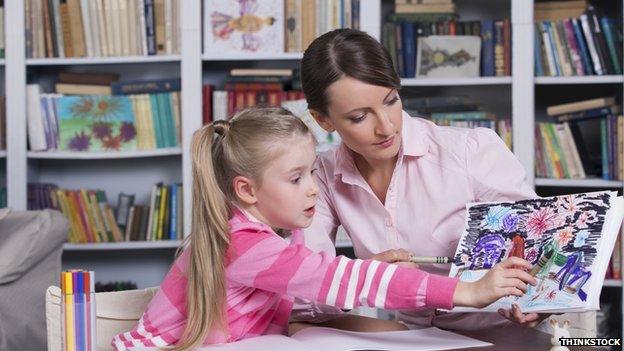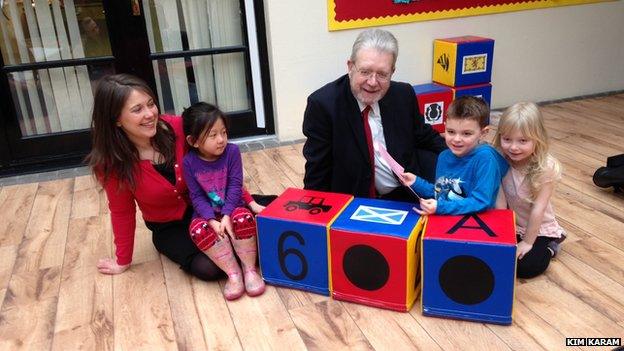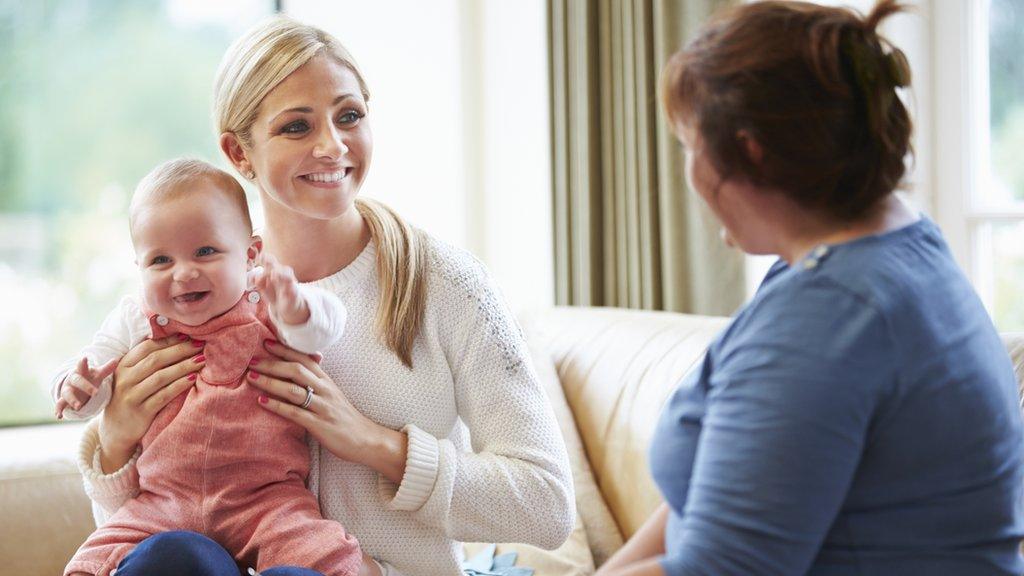Controversial child guardian plan will go ahead, says minister
- Published

The Scottish government has announced £40m in funding for 500 new health visitor posts to meet the demands of the named guardian policy
The Scottish government has defended its controversial plan for a named guardian for every child in Scotland.
Speaking to the BBC, Children's Minister Aileen Campbell said the policy would be rolled out across the country as planned in 2016.
She said it would help families in need and save taxpayers' money.
Conservative MSP Gavin Brown said the policy would create a "giant bureaucracy" that would not help those most in need.
MSPs approved the Children and Young People Scotland Bill, external, which includes legislation to create a "named person" for every child in the country, in February.
The policy is already in place in a number of areas, including the Highlands, Edinburgh and Ayrshire, but is not due to be extended to the rest of Scotland until 2016.
The Scottish government has said the legislation would stop vulnerable children slipping through the net and give families a point of contact should they need assistance.
Earlier this month, ministers announced £40m in funding for 500 new health visitor posts to meet the demands of the policy, which will cover children from birth to the age of 18.
Midwives and senior teachers could also be named guardians, depending on the age of the child.
'Good practice'
Religious groups have raised concerns around the diminishing role of parents and the Christian Institute is preparing to mount a judicial review against the move.
The group has asked the Scottish government not to implement the "named person" element of the bill until the outcome of the legal action is known.
Speaking on the BBC's Sunday Politics Scotland programme, Ms Campbell said the policy was supported by many organisations and would go ahead as planned since there was "no good reason" to delay.
She added: "This is about embedding good practice. We've seen [from pilots] that this reduces bureaucracy and allows professionals to intervene where families most at need require additional support. We've seen a reduction in inappropriate referrals to reporters - it saves money.
"The cost to the public purse of not doing these things is that problems escalate into crisis and that's something we want to avoid. This supports parents and responds to what parents have told us they want."
She said nothing in the legislation affected parents' rights.
'Giant bureaucracy'
However, Mr Brown, also speaking on Sunday Politics Scotland, said the rights of parents was a "fundamental issue", while the universal nature of the provision meant spending money on "people who don't want it and who don't need it".
He added: "There is a danger that it is very inefficient and you are spending enormous amounts of money on a giant bureaucracy that doesn't help a single child.
"You are disturbing, slightly, the autonomy of the family, you are moving the balance towards the state, away from parents and ultimately, in almost every circumstance parents know best.
"The state doesn't know best, or have an unblemished record in this area, and I think that's why parents are nervous."
- Published26 March 2014

- Published19 February 2014

- Published18 June 2014
